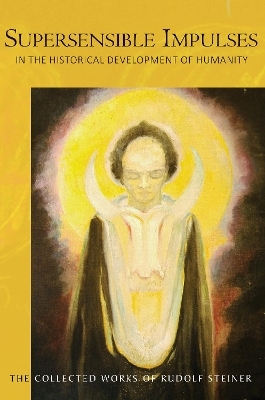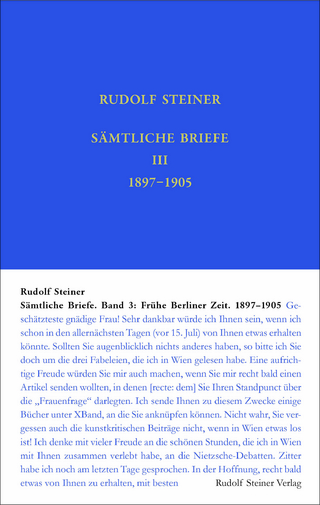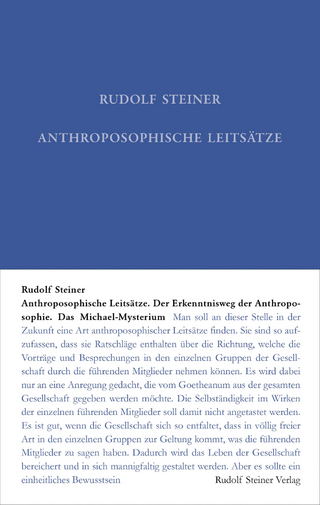
Supersensible Impulses
Rudolf Steiner Press (Verlag)
978-1-85584-663-0 (ISBN)
‘When you perform a ritual, it is an appeal to the spiritual powers of the universe, an appeal to the powers that are meant to connect with the earth precisely through what people do…’ – Rudolf Steiner
With rituals or cultic forms as his central motif, Rudolf Steiner refers extensively to Indian, Persian and in particular Egyptian initiation rites, and how these enabled people of antiquity to connect with specific spiritual beings. He explains the practical purpose of mummification for the religious life of ancient Egypt, and of the use of ritual in certain secret societies or brotherhoods today as, in turn, a mummification of Egyptian rites. But he also points to the future, describing how truly-formulated rituals have a positive effect on human development. Whilst inhalation exercises were relevant to cultures of the past, the principle of ‘exhalation’ is important for future evolution.
On the one hand, these extraordinary lectures relate to Rudolf Steiner’s ceremonial work in the Esoteric School of 1906-1914, but more significantly they were given in parallel to the founding of the Christian Community, for which Rudolf Steiner mediated its sacraments. Today, he states, Christ must be sought through a new access to the spiritual world, and any remaining traditional ritualistic forms should be permeated with the power of the Mystery of Golgotha. The lectures are accompanied with an introduction by Dale Brunsvold, editorial notes and an index.
Rudolf Steiner (1861–1925) was born in the small village of Kraljevec, Austro-Hungarian Empire (now in Croatia), where he grew up. As a young man, he lived in Weimar and Berlin, where he became a well-published scientific, literary, and philosophical scholar, known especially for his work with Goethe’s scientific writings. At the beginning of the twentieth century, he began to develop his early philosophical principles into an approach to systematic research into psychological and spiritual phenomena. Formally beginning his spiritual teaching career under the auspices of the Theosophical Society, Steiner came to use the term Anthroposophy (and spiritual science) for his philosophy, spiritual research, and findings. The influence of Steiner’s multifaceted genius has led to innovative and holistic approaches in medicine, various therapies, philosophy, religious renewal, Waldorf education, education for special needs, threefold economics, biodynamic agriculture, Goethean science, architecture, and the arts of drama, speech, and eurythmy. In 1924, Rudolf Steiner founded the General Anthroposophical Society, which today has branches throughout the world. He died in Dornach, Switzerland.
| Erscheinungsdatum | 25.04.2024 |
|---|---|
| Reihe/Serie | The Collected Works of Rudolf Steiner |
| Einführung | D. Brunsvold |
| Übersetzer | P. King |
| Verlagsort | East Sussex |
| Sprache | englisch |
| Maße | 155 x 235 mm |
| Themenwelt | Weitere Fachgebiete ► Anthroposophie |
| ISBN-10 | 1-85584-663-2 / 1855846632 |
| ISBN-13 | 978-1-85584-663-0 / 9781855846630 |
| Zustand | Neuware |
| Informationen gemäß Produktsicherheitsverordnung (GPSR) | |
| Haben Sie eine Frage zum Produkt? |
aus dem Bereich


